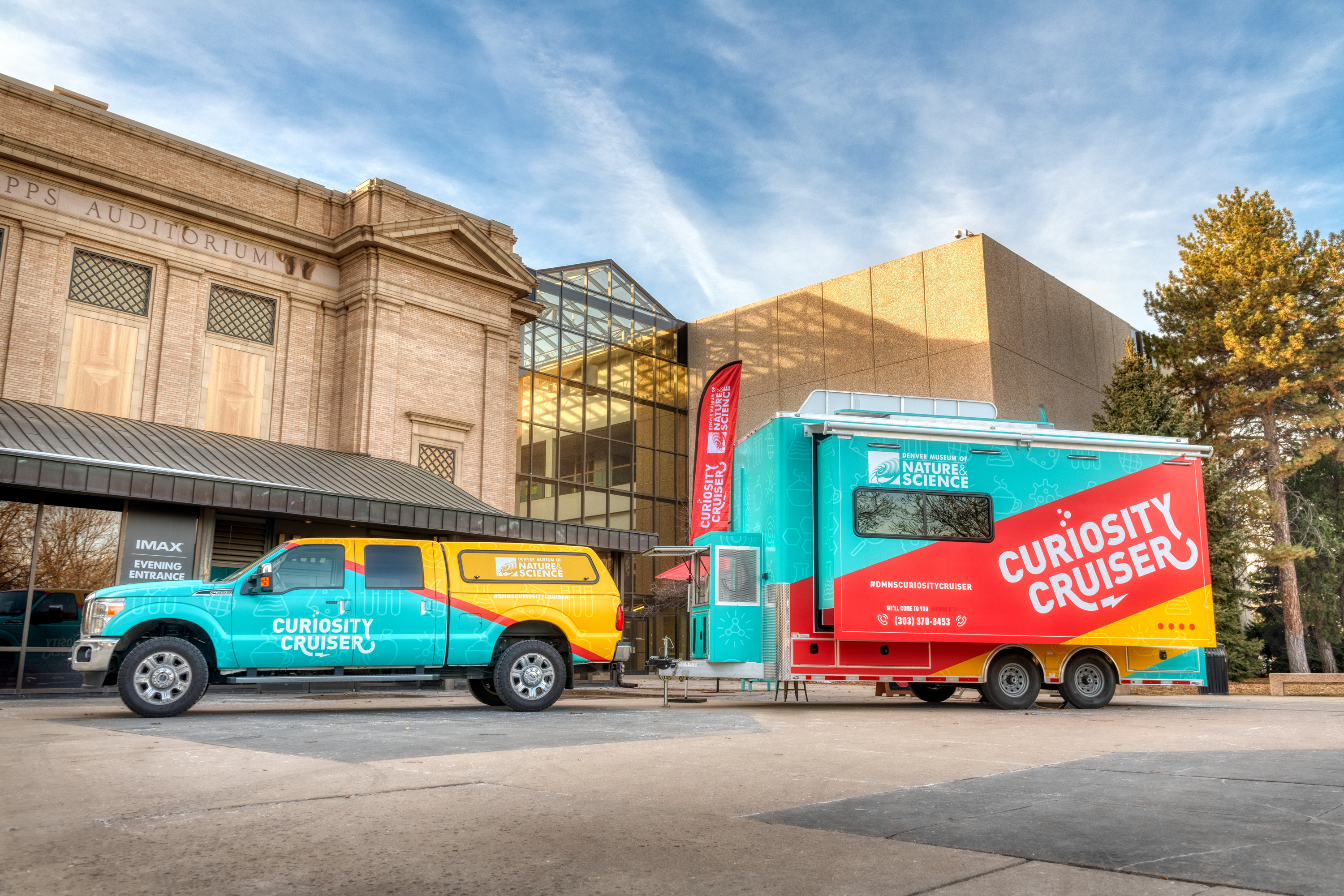
DENVER - In an effort to bridge the gap in access to education, the Denver Museum of Nature & Science takes its exhibits on the road, bringing science education directly to underserved communities through our mobile "Curiosity Cruiser" program, as featured by Denver7 ABC through a broadcast news report and digital article on August 11 and 12, 2023 by Becca Roberts and Rob Harris, respectively.
Our Museum has seen a remarkable 10% increase in visitors this summer compared to the previous year, indicating a growing desire for learning about the world. Recognizing, however, that not everyone can physically visit the Museum, the institution has been taking education to the streets for the past year with the Curiosity Cruiser.
- Where is it now? Track the Curiosity Cruiser, here!
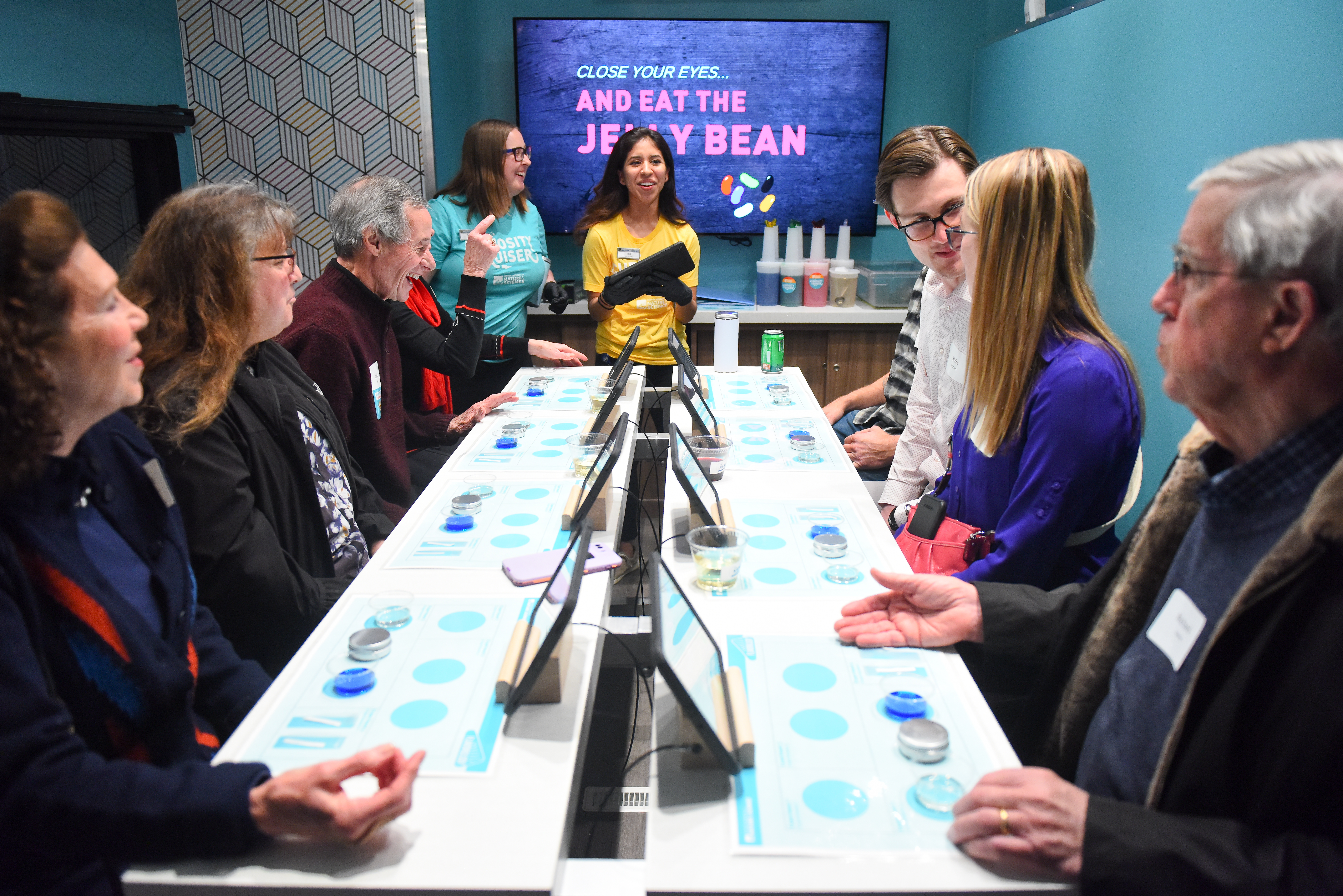
The Cruiser is staffed by professional Museum educators who know how to feed minds and imaginations. (Photo/ Julio Poletti)
Zack Garvin, a specialist in community events at the Museum and a key figure behind the Curiosity Cruiser initiative, explained the program's mission to serve underserved community members and partners. The Curiosity Cruiser is a brightly colored trailer equipped with materials for various science lessons, designed to demystify scientific concepts and make learning accessible to all. Several times a week, Garvin and his team choose a science topic and target a Colorado community to visit.
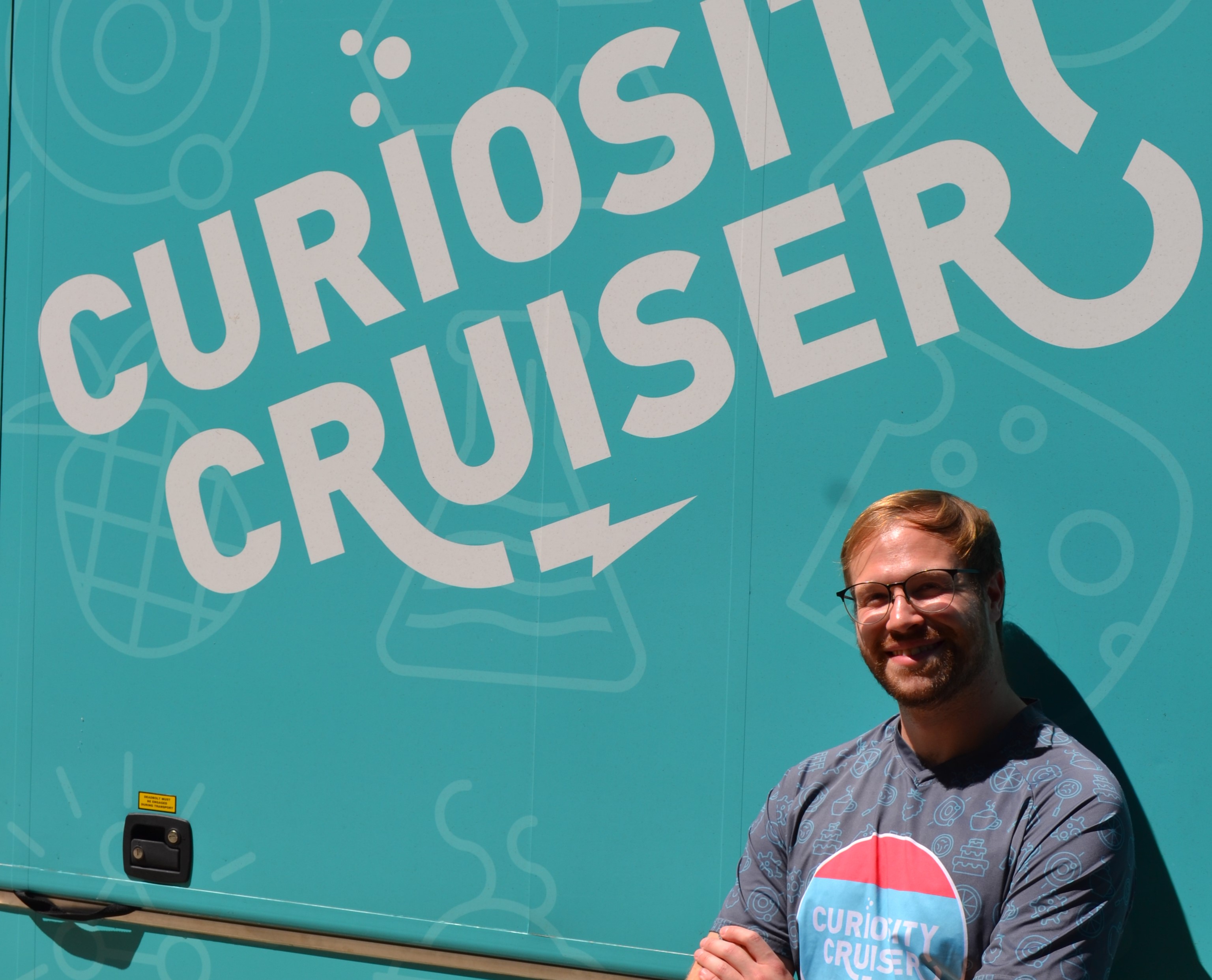
Zack Garvin, a specialist in community events at the Museum and a key figure behind the Curiosity Cruiser initiative, stands in front of the Curiosity Cruiser. (Photo/ DMNS)
The Curiosity Cruiser isn't just about delivering educational content; it's about sparking curiosity and fostering an appreciation for science. One recent lesson focused on "flavourology," a deep exploration of taste and how genetics influence our perception of food. The location chosen for this lesson was the Huerta Urbana Farmers Market, which is a market based on a pay-what-you-can model that provides the Globeville community with access to fresh groceries regardless of financial constraints.
Related: Meet Noel Dominguez, the Museum's New Director of Equity and Inclusion.
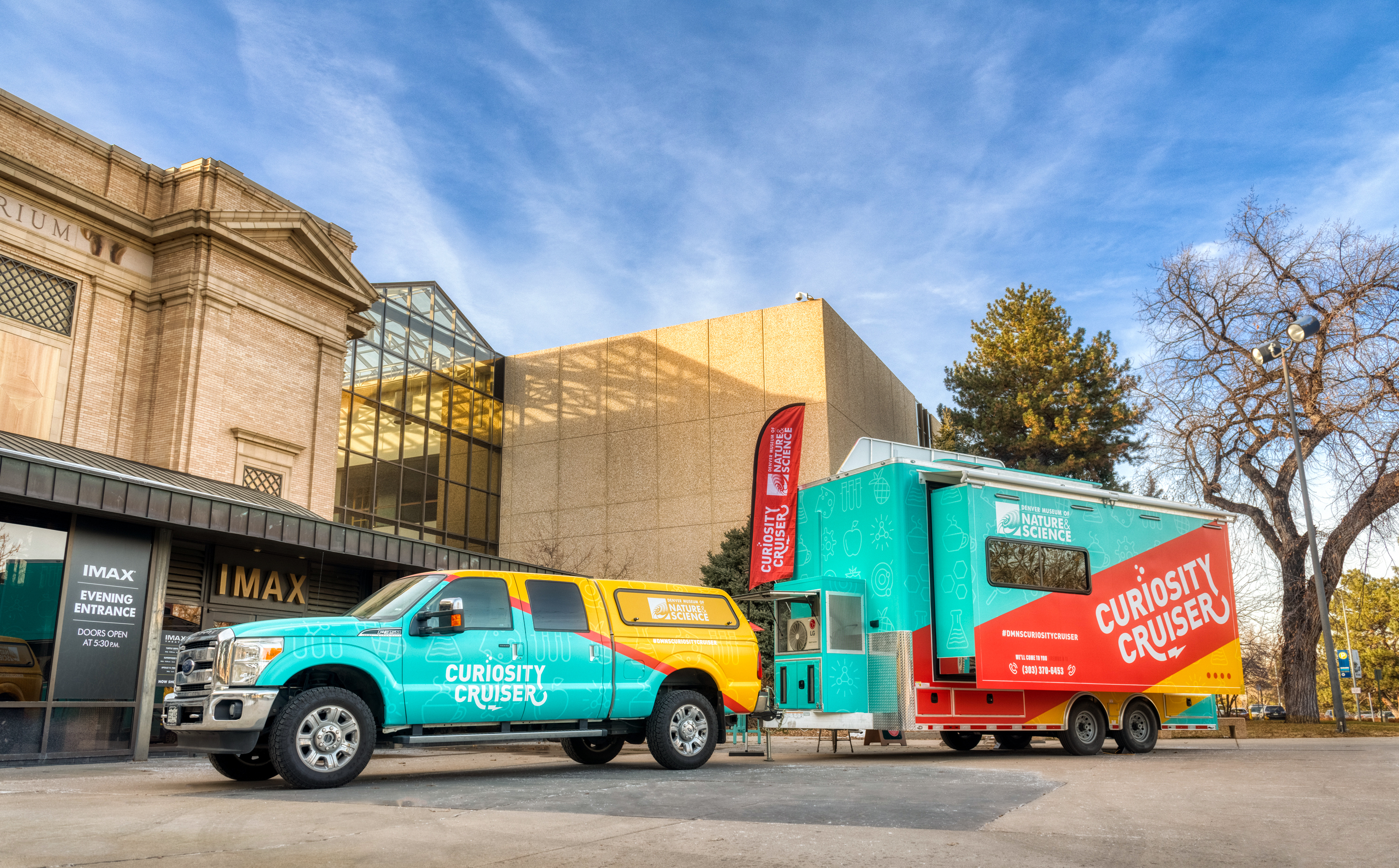
The Curiosity Cruiser at the Denver Museum of Nature & Science (Photo/Julio Poletti)
The Curiosity Cruiser is particularly relevant in Colorado, where educational disparities have been identified. According to the Denver7 report, statewide assessments in 2019 revealed that only about 18% of students who qualified for free or discounted lunches met or exceeded expectations in science, compared to 36% of their peers. By bringing science education directly to communities, the Denver Museum of Nature & Science aims to empower students to develop critical thinking skills and a deeper understanding of the world around them.
Garvin highlighted the program's significance in everyday life, emphasizing that science is ubiquitous and can be understood and appreciated with a little critical thinking.
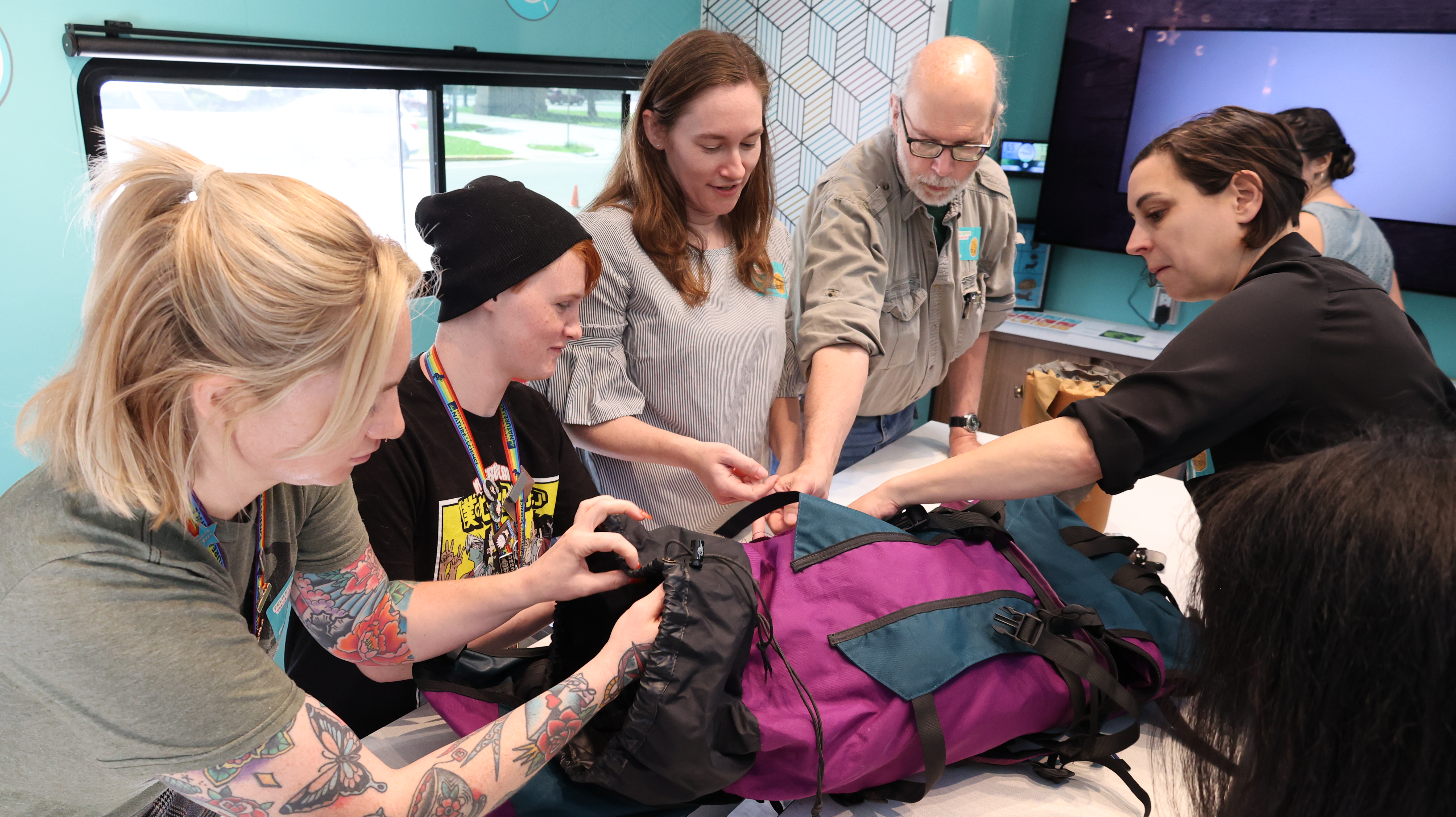
Group engaging in one of many learning exercises inside the Curiosity Cruiser (Photo/ Julio Poletti).
"When you make coffee, the chemistry is right. When you eat something, your brain uses its own processes, its own biological processes, to taste things – and maybe even genetics to taste things a little differently than others," said Garvin.
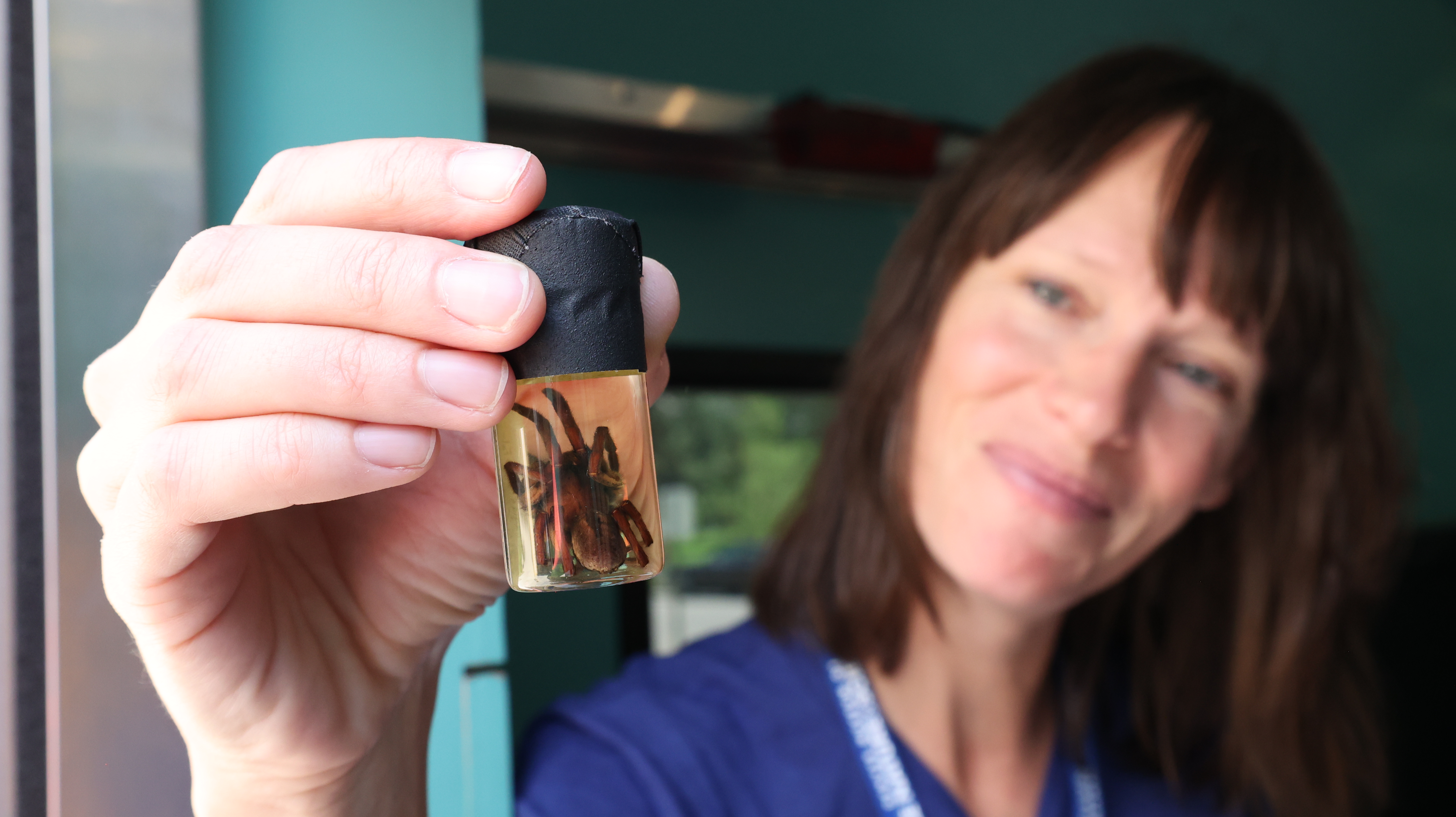
Museum staff member looking at a spider specimen found inside the Curiosity Cruiser (Photo/ Julio Poletti)
The Curiosity Cruiser concept took years to develop and was launched in its current form last year, incorporating lessons from the challenges posed by the pandemic. It has since traveled across Colorado, from Boulder to Brighton and beyond, seeking new opportunities to ignite curiosity and share the love of science. As Garvin expressed, the Museum's overarching mission is to spark curiosity within the community, and the Curiosity Cruiser is a tangible embodiment of this commitment.
As the Museum continues to inspire and educate, the Curiosity Cruiser remains a beacon of accessible and engaging science education for all, regardless of background or location.